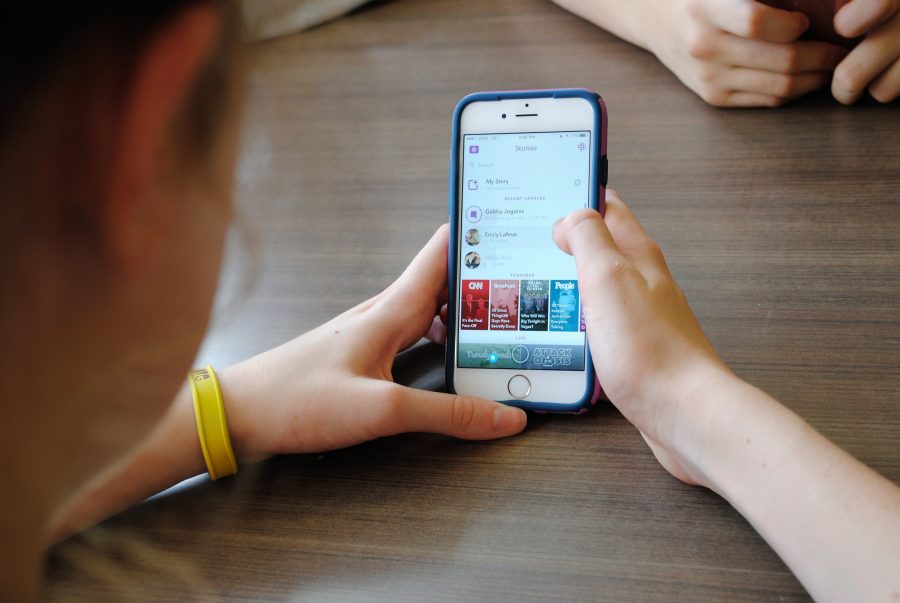Beyond your self(ie)
Social media connects us. Nearly every Mercy student has an Instagram, Twitter, or Snapchat that serves as an extension of their lives and allows them to show a smoother, more streamlined version of themselves outside of the daily routine of school. These accounts often serve as friendly platforms to share Homecoming pictures, artsy photos, and witty messages. However, there comes a point when too much is shared, and the consequences can be quite lasting and dangerous.
Everyone has heard it at one time or another: what goes online, stays online forever. From pictures of a night of partying to sharing locations, addresses, and, in some cases, credit card information, these pictures posted to various sites can come back to haunt the poster. Teens posting pictures of themselves drinking and partaking in other risky and illegal behavior is often a painfully permanent choice.
“I think some people our age put some pretty questionable things online,” said freshman Julia Coffman. “People put things on their snapchat stories that they shouldn’t — it’s important to remember that people can take screenshots of whatever you post, just like they can with any [other form of social media].”
A quick search of a name can bring forward a multitude of information. Because of the increasing use of social media and its ever-expanding available platform, it is not uncommon for colleges and businesses to run a scan of a possible student or employer’s accounts. Therefore, you should take a second to think whether or not you should really post that tweet or photo.
One of the best ways to stay safe online, besides avoiding posting locations via geolocation features or other personal information, is to pay attention to privacy settings. Some social media platforms, like Twitter and Instagram, allow users to choose followers and block their account to everyone else.
Oversharing personal information can do more than just harm a reputation, too. In extreme cases, identity theft and even crimes related to stalking can follow strings of pictures or tweets displaying constant locations and information such as phone numbers, emails, home addresses, and other personal information. By choosing secure passwords that are preferably different than those for other accounts, and by refraining from sharing too much, it can be much more difficult for potential hackers to gather personal information.
“I’ve seen students give their social media account passwords to their friends, and we’ve actually had multiple cases of students going in and doing malicious things through other students’ accounts,” said Mr. Tom James, director of Mercy’s IT department. “It’s important to refrain from using the same password for multiple accounts and always avoid sharing them.”
Because of the nature of social media, it is easy to feel pressured into doing and posting things — many of which could be illegal, personal information, or something that could harm one’s reputation. Before you post, ask yourself: would I want my future boss or an admissions counselor from my dream college to see this? If the answer is no, save yourself the trouble of potential legal issues and danger, and logout for the day.
“You really need to ask yourself who can see what you post,” said Mr. James, “and, more importantly, what they might be able to learn about you from it.”

